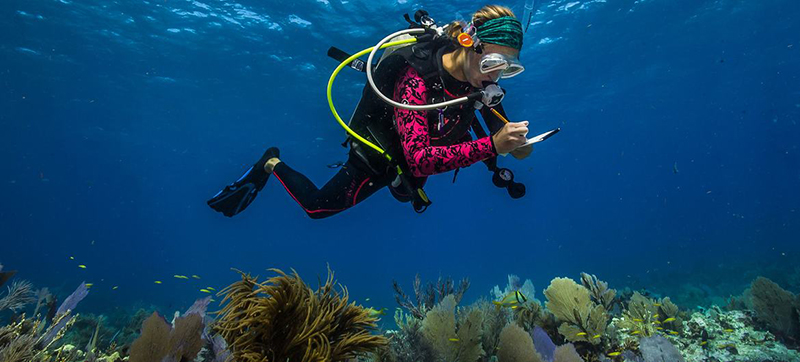 Ocean
Ocean
Increasing scientific knowledge, developing research capacity and making the most of new marine technology, are essential to sustainable ocean management, the UN Ocean Conference in Lisbon, Portugal, heard on Thursday.
The Conference’s fourth day, focused on the role of the scientific community, to enable the blue transformation of humankind’s relationship with the ocean.
Stressing that this knowledge is a prerequisite for the achievement of Sustainable Development Goal 14, scientists are calling for more support for life underwater long-term..
With over 3 billion people heavily reliant on marine ecosystems for food and livelihoods, deployment of solutions to reach ocean-related targets, depend on the actions of current and future generations.
Science for sustainable development
Recent years have seen increased scientific innovation and growing recognition of the importance of ocean science in contributing to the 2030 Sustainable Development Goals (SDGs).
A vast range of initiatives have been developed and are being implemented not only by the UN, but also by governments, civil society, and the scientific community.
Strong engagement and ownership by a wide range of stakeholders is essential for optimizing the unique opportunity provided by the UN Decade of Ocean Sciences for Sustainable Development (2021 to 2030), and realizing the 2030 Agenda for Sustainable Development.
The Intergovernmental Oceanographic Commission IOC) is the body that works to strengthen international collaboration on ocean science and ocean research – a job that no single country can undertake by itself.
‘A critical time’
Applauding recent progress in ocean marine research and ocean observations, scientists at the Conference are stressing the importance of not waiting any longer to act.
Veteran marine biologist and oceanographer, Sylvia Earle, participated at events all week in Lisbon.
“Use your power and get others to use theirs to protect nature, to give back, to stop the killing and understanding the pollution that we are causing, we can stop that too”, Ms. Earle said.
Describing knowledge itself as a “superpower”, Ms. Earle added: “this is the time, a critical time, it’s never before, it’s never again, take action. We have the best chance ever to find a place within the natural systems to keep us alive”.
Participating at an event calling for bold action, Emanuel Gonçalves, board member and chief scientist of the Oceano Azul Foundation, reiterated the need to act now, and to not wait for 2030 to reach the SDGs.
“We can’t wait 30 more years to protect eight per cent of the Ocean, which is what we have now, and even those eight per cent are not adequately protected. We only have two to three per cent fully protected, so we need to put this agenda in place right now, and not in 2030”, said Mr. Gonçalves. Calling for new annual targets to spur action, he added “the moment is now, and that we can’t wait anymore.”
Law of the Sea and high seas
The promotion of ocean science recognized by the United Nations Convention on the Law of the Sea, which sets out the obligations of States and international organizations to promote international cooperation in marine scientific research, optimizes conditions for scientists, and promotes the flow of scientific data.
With high seas representing more than half or the global Ocean, Mr. Gonçalves, underlined the importance of solving its governance problem.
“The current mechanisms do not allow us to put protected areas in place, and without high seas it’s not possible to achieve 30 per cent protection. We need to make sure the high seas agreement moves, not only right now, but also that moves in a direction that empowers the institutions to be able to drive this protection and put it in place”, the expert said.
Why should you care and what can you do?
For Sylvia Earle, life depends on the Ocean: “the Ocean keeps us alive, and we need to keep the Ocean alive”, she said, asking each one of us to implement change: “in your backyard what are you going to do to plant native plants, flowers and trees that can help the Ocean? Protecting nature is everybody’s job.”
According to Mr. Gonçalves, each of us can do three things to help save the Ocean: to vote, to promote solutions to problems, and to change our consumer behaviour.
Talking about the RISE UP for the Ocean initiative, the marine ecologist and conversationist said that the initiative – which is a joint call by civil society, fisherfolk, indigenous peoples and philanthropic organisations to governments and corporations to agree to bold action to safeguard the ocean – Mr. Gonçalves said that the world needs to move from a call to action, to a plan of action.
Liu Zhenmin, head of the UN Department of Economic and Social Affairs (DESA) told UN News that the political declaration to be adopted on Friday following Member States’ agreement ahead of Lisbon, proves that the world is on course to take urgent action to avoid increasing harm to the ocean, calling the outcome “reassuring and profound”.
UN News will be bringing you coverage of the final day of the UN Ocean Conference on Friday.
Support Our Journalism
We cannot do without you.. your contribution supports unbiased journalism
IBNS is not driven by any ism- not wokeism, not racism, not skewed secularism, not hyper right-wing or left liberal ideals, nor by any hardline religious beliefs or hyper nationalism. We want to serve you good old objective news, as they are. We do not judge or preach. We let people decide for themselves. We only try to present factual and well-sourced news.






